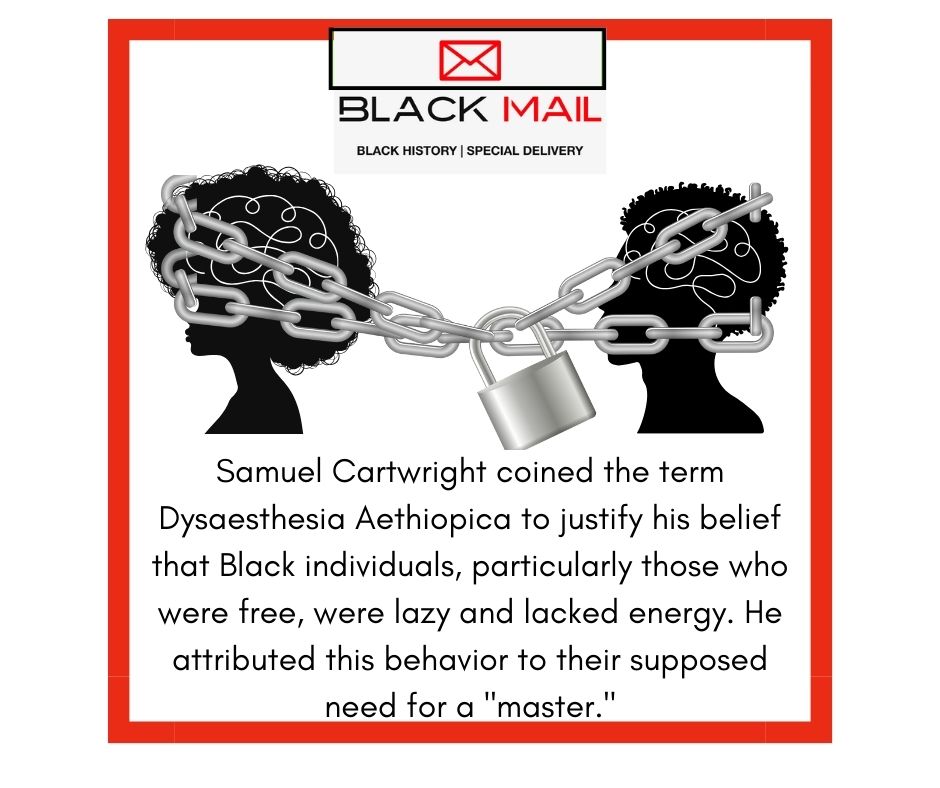Welcome to Black Mail, where we bring you Black History—Special Delivery!
In the 1851, Dr. Samuel A. Cartwright, a self-proclaimed expert on the “maladies of the Negro race,” coined the term Dysaesthesia Aethiopica. This fabricated condition supposedly afflicted Black enslaved and free individuals, making them lazy and lethargic. The term “Dysaesthesia” refers to a state of abnormal sensation or perception, while “Aethiopica” pertains to Ethiopia or, in this context, to Black individuals. Essentially, Dysaesthesia Aethiopica translates to “Ethiopian Bad Feeling” or “Black Bad Feeling.”
Cartwright described symptoms such as partial insensitivity of the skin and a diminished intellectual capacity, likening affected individuals to those “half asleep.” Essentially, he was asserting that they were lazy and lethargic. He claimed that the illness was more prevalent among free Black individuals and prescribed violent treatments, including washing with warm water and soap, anointing with oil, and slapping the skin with a leather strap. In other words, he believed that whipping the enslaved person would help to “cure” Dysaesthesia Aethiopica and restore the black person’s gratitude toward their white oppressors. According to Cartwright, without a “master,” a Black person was lost.
Cartwright’s promotion of this racist pseudo-science was widely accepted in the South and mocked in the North. In addition to Dysaesthesia, Aethiopica touted another condition called Draepetomania. Cartwright coined this pseudo-psychological disorder to assert that enslaved persons who attempted to run away had a mental illness. Check out our previous blog post for more info on Draeptomania. It’s been over 150 years since Cartwright introduced these conditions into the medical lexicon. While their validity has long since been debunked, Black people still experience the negative impact of racism, bias, and stereotypes in their pursuit of mental health treatment.
Another installment of melanated mail has been delivered. Ponder, reflect, and pass it on.



